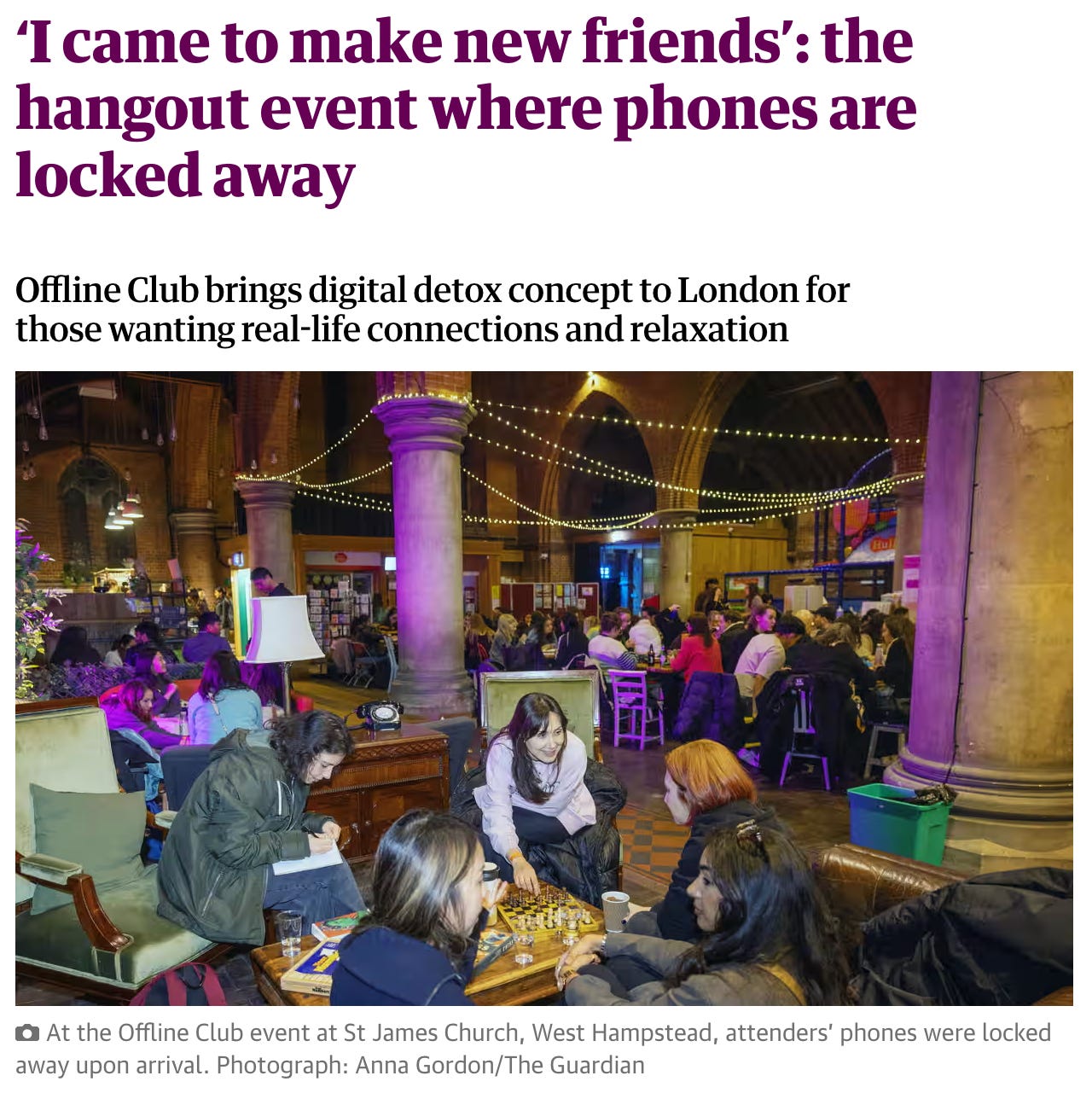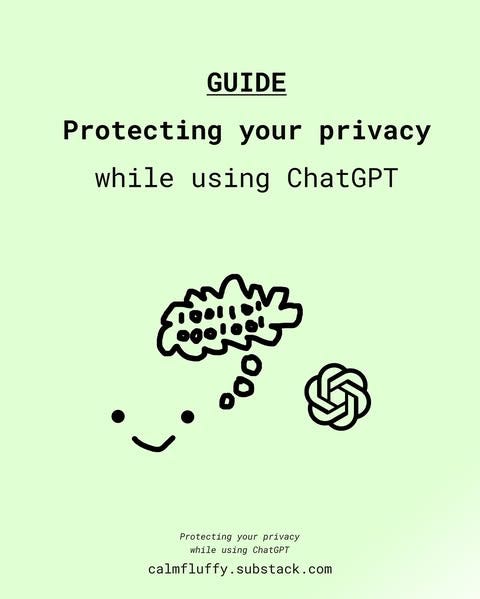I joined 30 strangers for The Offline Club's first Berlin meetup
No phones, no internet, just brains and bodies
“Adult daycare” is how I first heard a gathering by The Offline Club in London described. My curiosity was piqued, as I had just completed my month without my phone. The ‘club’, which was founded in the Netherlands in 2024, has had momentum on its side as people renegotiate their relationships with their devices after being confined to their rooms with them during the pandemic. I signed up for the Berlin waitlist and joined the first hangout in June.

We met in a café in Berlin’s Neukölln neighbourhood near Tempelhofer Feld. Upon arrival, the hosts made sure to welcome everyone and asked us to check our devices into a “phone hotel”. These phone hotels are basically minibar-shaped boxes with numbered slots for phones — a cloakroom for your iPhone. I checked my phone, sat myself down, and grabbed my book (a fantastic oral history of Berlin’s techno scene and the fall of the wall).
We kicked off with some me-time, where you could do anything, but were asked to refrain from conversation. After this first hour, everyone was invited to break out of their bubbles and mingle. Some people were playing games, others chatting, and I had sat myself down next to a beatmaker who walked me through how his sampler worked. (I’ve misplaced the note on which I wrote down his name, otherwise I’d link to his music here)
Video via The Offline Club Berlin’s Instagram account.
It was great mixing with other offline-curious people and learning about their perspectives and strategies. It was also great that the organisers had thought of some activities people could engage in (though I can’t recall what, as I wasn’t seated near that table). However, what I thought really added magic was that some people, such as the beatmaker, showed up with something that let them connect with others. This moves away from the traditional model of attending events as a consumer, and instead, we take ownership and come together as participants, all of us responsible for creating the event together. That can be true for club nights, festivals, offline hangouts, or really any other gathering of people.
I haven’t been to another Offline Club hangout yet. Partly because, for me, being offline is not really a reason for a regular hangout. I’m offline with people when I go to dance or yoga classes. Berlin’s dancefloors are also quite smartphone-conscious: it’s generally frowned upon to use your phone on the dancefloor, and taking photos may get you kicked out of clubs altogether. I often choose to leave my phone at the cloakroom and can think of at least one club where that is, in fact, mandatory, which introduces a great (and rare) crowd dynamic.
Purposeful offline hangouts would hit the sweet spot for me. An offline hike. A clothes repair workshop followed by some drinks. A phone-free show-and-tell vinyl listening session. A letter-writing meetup. Zine-making. Basically: you’re offline, now what? But maybe that’s a step further than where most people are at.
During my month without my phone, many people shared how they couldn’t imagine leaving their phone at home when going to the supermarket or for a walk around the block, let alone for a whole workday. So, for all the nervously offline-curious: I strongly recommend checking out The Offline Club and at least one of their hangouts. It’s a fantastic way to connect with other offline-curious people and a really easy way to take your first dip. And if they’re not active in your city yet, go offline with your friends and have everyone leave their phones in a bag by the front door when you invite them for dinner. Bon appétit.
A quick note: we’ve crossed 250 subscribers! Yay! Thanks, everyone, for your early support. I’m excited to be on this journey together with you. If you’d like to support more, please drop a like or a comment on pieces you’d like to see more of. It gives me a better understanding of the community’s interests and needs.
<3,
Bas
(◕‿◕✿) For your left mouse button
Due to a court ruling in the US, the New York Times will get access to deleted ChatGPT conversations. This is just one of many AI-related privacy infringements we’re likely to see in the coming years, but I’ve got you covered: I penned this AI privacy guide a while back. Or check out the Instagram carousel version.
I’ve been thoroughly impressed by the warmth and humility of Eliud Kipchoge, regarded by many as the greatest marathon runner of all time, on Dr. Rangan Chatterjee’s podcast recently. I’m not a palaeontologist, but I loved Jurassic Park. Similarly, I’m not a runner, but I came away feeling incredibly inspired by Kipchoge’s life lessons. It’s a 1.5-hour conversation you should not miss.
I’ve been listening to Lebanese oud player Rabih Abou-Khalil’s 1992 Blue Camel album, which is a fantastic fusion of jazz and Arabic music. It was a good reminder of how music is an art form that fills empty space with beautiful vibration.



There's something so special about the Oud and its sound world. It's a great combo with that discussion with Kipchoge